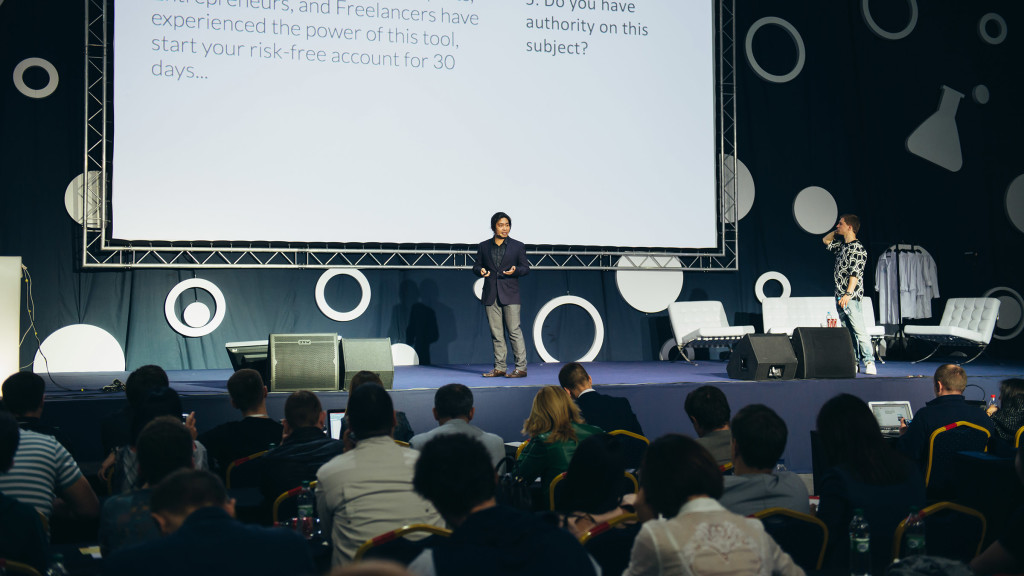When I first started learning about Conversion Rate Optimization or CRO, there were only a handful of experts in the world. In fact, a worldwide search of CRO Experts on LinkedIn showed less than a dozen people in the field.
I made it a personal mission to reach out and talk to these experts with only one question in mind:
“How do you look at a website through a CRO’s eyes?”
I was eager to capture their way of thinking, their methods, and their processes.
My rationale was, if I ever succeed in getting some of these experts’ precious time, I need to get information that I can reuse.
I didn’t ask them for any case studies or any winning experiments that they can share with me. Instead, I wanted to focus on how they do their jobs on a day-to-day basis.
That’s exactly what I got.
When it was my turn to speak in front of a massive crowd (2,500 business owners from 15 different countries), I knew what I wanted to share.
It was thrill speaking at Genius Marketing’s GM Summit at the Kiev Expo Plaza in Ukraine because I knew it was a fresh market.

CRO in that part of the world, much like New Zealand and Australia, is still in it’s early stages.
I am proud to shape or inspire future or would-be CRO specialists of course!
And how exactly can I give them the most value?
To share the same nugget of information I received years ago: How to Build a WorldClass CRO Strategy.
A CRO Strategy draws the line between the beginner and an expert who can actually shift the needle for e-commerce websites.
Most beginners focus on running A/B or MVT Testing.
But that is actually a small part of CRO.
Conversion Rate Optimization is the CREATIVE and SCIENTIFIC method of improving your website to persuade your visitors to take an action…
A/B Testing is just the tool used by CRO.

Your strategy needs to have a lot of creativity.
You need to find innovative ways to keep your website updated and relevant to the changing market. Otherwise, you will get left behind.
It’s also a scientific process, meaning it follows a step-by-step guideline that includes having an educated guess and proving that educated guess – which we call a hypothesis.
You need to follow a process, identify areas for improvement, create hypothesis, and prove your hypothesis by running an experiment
And this is the most important thing to consider if you want your website to convert.
Doing random experiments backed by no psychological or marketing-based rationale, will only get you so far.
When you create and follow a strategy, not only will you have more successful tests but actually be able to trickle the results of these tests to every aspect of your marketing, not just on the website.

